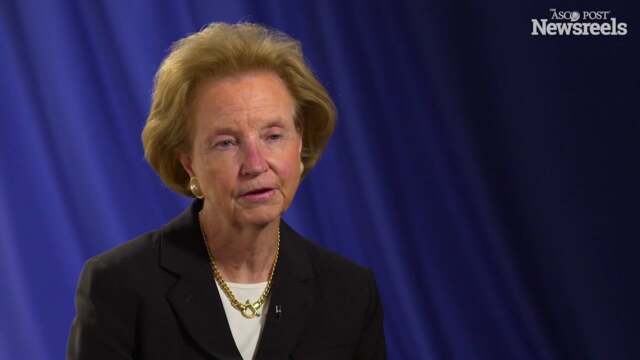Amelie Harle, MD, on Aprepitant for Cough in Lung Cancer
2015 Palliative Care in Oncology Symposium
Amelie Harle, MD, of the Christie NHS Foundation Trust, discusses a clinical trial––the first of its kind—designed to assess the efficacy of an antitussive in patients with lung cancer (Abstract 2).
Lorenzo Cohen, MD
Lorenzo Cohen, MD, of The University of Texas MD Anderson Cancer Center, discusses nonpharmacologic approaches to symptom control. Techniques such as acupuncture for managing pain and chemotherapy-induced nausea and vomiting, or yoga and meditation to help improve quality of life, can be safely integrated into oncology care.
Kathleen Elizabeth Bickel, MD, MPhil
Kathleen Elizabeth Bickel, MD, MPhil, of the White River Junction VA Medical Center, discusses the ASCO/AAHPM Guidance Statement, which will help oncology providers enhance their delivery of palliative care (Abstract 108).
Charles L. Loprinzi, MD
Charles L. Loprinzi, MD, of the Mayo Clinic, discusses olanzapine for the prevention of chemotherapy-induced nausea and vomiting in patients receiving highly emetogenic chemotherapy (Abstract 176).
Ralph J. Hauke, MD
Ralph J. Hauke, MD, of Nebraska Cancer Specialists, discusses the application of scientific analysis and research to palliative care issues, which will allow better prognostication, implementation of measures, and improved quality of life.
Kathleen Foley, MD
Kathleen Foley, MD, of Memorial Sloan Kettering Cancer Center, discusses the challenges of integrating palliative care in areas without sufficient resources or health-care infrastructure.





